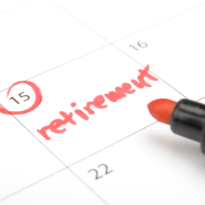For paraplanners to truly understand the client experience of financial planning they should put themselves through the cashflow forecasting process and the emotions it can create, says Kim Bendall, director of outsource paraplanning firm Go Paraplanning.
Go on, be honest. How many of you have actually done your own proper financial plan?
Or, going one step further, how many of you have your own financial adviser?
I ask these questions because a few years ago I was presenting at an industry event. We’d been talking about cash flow planning, and I asked a group of around 30 delegates how many of them had put their own financial details into a cash flow tool and had a look at it.
I was genuinely shocked to find that only two hands were raised (and mine was one of them).
When I probed a bit further into why the rest of the group hadn’t looked at their own cash flows, I was given this answer…
“Because I’m too scared to see what it would tell me”.
Just take a minute to re-read and process that statement…
I have to admit that I was quite shocked, saddened, and a little bit disappointed that virtually a whole room of people that:
- do financial planning for a living,
- who have the knowledge to do it themselves,
- have free access to the necessary tools,
- and who actively put their own clients through this, day after day
…have never even experienced what it’s like to face that fear.
Why is this?
I’ve not undertaken any formal survey on this (although it would be an interesting exercise) but suspect that there are various factors that contribute to it. My guess is a combination of:
- ‘cobblers’ shoes’ syndrome – i.e. you spend so much of your time looking after everyone else’s finances every day that it’s the last thing you want to do during your down-time.
- Demographic – i.e. many paraplanners tend to be younger people that haven’t yet (in their own opinions) amassed enough financial resource yet for cash flow planning to be relevant to them, or make any real impact.
- Privacy – some of them may not want to use their company’s cash flow tool if it means that their colleagues and employers will be able to see the data.
- ‘ostrich’ syndrome – i.e. if I don’t look at it, it doesn’t affect me.
It would be interesting to see if this lack of willingness to look at our own financial plans is more prevalent among paraplanners than advisers, or whether it’s more an age-related issue. I’m a fair bit older than the average paraplanner, but even when I first had the ability to access a cash flow tool, some 20 years ago, one of the first things I did was run my own numbers. This was out of morbid curiosity more than anything, but also it occurred to me that when you use your own numbers, it’s easier to understand how the software works. It also helps you spot when something doesn’t look right.
This isn’t to say that we’re ‘wrong’ or ‘bad at our job’ if we choose not to create our own financial plans. On the contrary, I know that many of the people in the group that I spoke to are very skilled financial planners. My concern is more about empathy. I think it gives all of us a better understanding of our clients, their emotional responses, the levels of engagement, and what’s important to them if we’ve sat in their seats and know how it feels to be on the receiving end of the ‘blue is good, red is bad’ conversation.
Moreover, I believe there’s an even more important reason for encouraging particularly the younger generation of financial planners to engage with their own financial plan. The sooner you look at it, the sooner you identify what you need to achieve in order to live the lifestyle you want. And as we all know, the miracle of compounded returns means that the sooner you start saving what you need to, the quicker it’ll grow and the sooner you can start enjoying the fruits of your labours. Even if you have no meaningful capital or surplus income now, surely at least knowing what you need will influence some of your decisions in the future and help you get on the right path? Having that knowledge – knowing your numbers – might be scary, but it’s also incredibly powerful and liberating, knowing that you have the power to do change it – or at least, to have ownership over how you deal with it.
Personally, I would rather know if my cash flow is bad news while I’m young enough to do something about it, rather than waiting until I’m closer to retirement to find out that my lifestyle is going to be more restrictive than I’d hoped. At least then, if I know what I need to do but still choose not to do anything about it, I’ve made an informed decision to spaff all my spare money on shoes and handbags instead of giving myself more options in retirement.
That’s the point I’m trying to make here. It doesn’t necessarily matter so much what I do with my financial plan, or even that I achieve all my goals. The important thing is that I’m not bimbling my way through life blissfully unaware of the consequences of my choices. I know that if I give myself something extra now, it’s probably at the cost of something I would give myself later. But at least I know that, and I have a fair idea of the damage that it may or may not cause in my twilight years.
It’s a bit like being afraid of going to the Doctor because you’re scared of what they might tell you. (And trust me, I know all about that fear). Many years ago, I was talking to a cousin (who was a Consultant Orthopaedic Surgeon at the time) about my fear of all things medical. He said something that profoundly changed the way I think about my fear. He said to me:
“Don’t be afraid of going to the Doctor. Be afraid of what will happen if you don’t go to the Doctor”.
And there’s the rub. My fear of a scary diagnosis pales into significance when I think about how much more invasive, or less effective, any treatment might be the longer I leave it before knowing there’s something wrong with me in the first place.
I do fully understand, though, that for many people the responsibility and weight of a scary diagnosis – whether financial, medical, or in any area of your life – is a heavy burden to carry. The ostrich syndrome is definitely the easier option… but only in the short-term. You can’t put off the inevitable forever.
An idea
So here’s an idea. For those of you who are brave enough to share your financial data with other planners/paraplanners, why not do a swap, and be each other’s advisers?
It’s difficult to take an objective and impartial view over your own finances, but it’s a lot easier when you’re providing an arm’s length view of someone else’s. This doesn’t need to include any regulated advice, suitability reports, ongoing services, etc. Just a very simple, 1-page financial plan with some high-level observations and bullet points on the things that the other person should be considering or doing, but not yet had the time or inclination to get around to. We all have the means to do our own implementation and choose the right products and investments for ourselves; we just need that initial boot up the derriere to spark some action.
So, my challenge to you, is to find someone that will hold you to account. Someone that you have an incentive to impress with your ability to put your own house in order first. But more importantly, do it for yourself.
It might be one of the most empowering and valuable actions you take in your life.
[Main image: raychel-sanner-1cJXplTxrmI-unsplash]



































